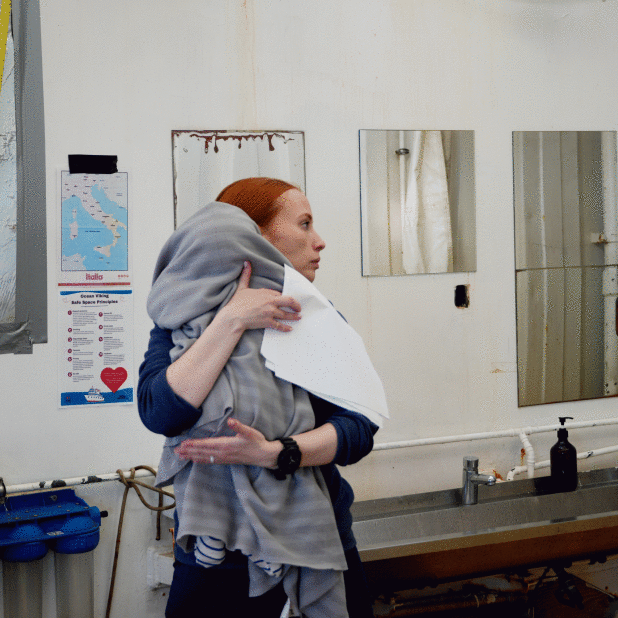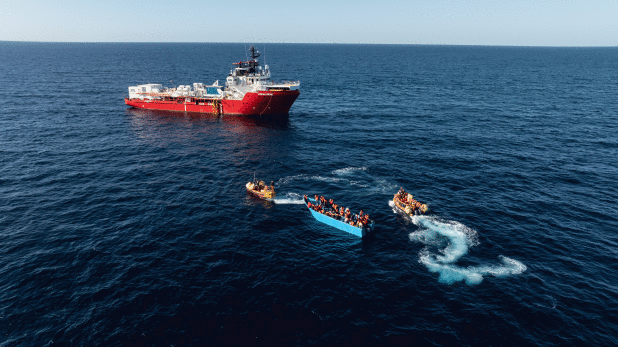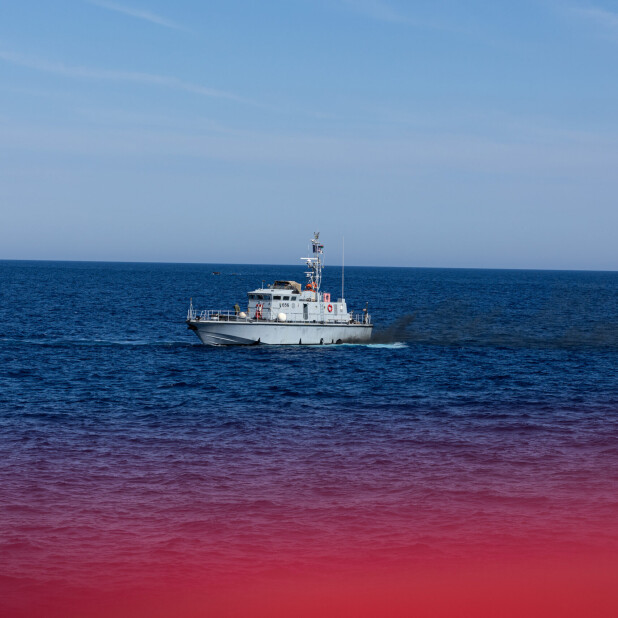

As part of the 2025 UN Ocean Conference, SOS MEDITERRANEE’s Head of International Advocacy and Public Positioning Bianca Benvenuti spoke on the panel Seas as Humanitarian Spaces.
Patrick Eba—UNHCR Deputy Director, Division of International Protection—opened by saying, “The Mediterranean… has become an open cemetery for refugees and migrants who are fleeing conflict… every single year, thousands of lives are lost at sea in search of hope, in search of safety. This is unacceptable. It is a stain on our human conscience. It is the failure of governance. It is the failure to uphold the right to life. It is a failure to uphold international law.”
What happens today in the Central Mediterranean is not coordination. It is abandonment. And the consequences are measured in lives lost.

Since IOM began tracking deaths in the Mediterranean in 2014, at least 32,146 people have died, and this number is believed to be significantly higher than reported. These women, children, and men are fleeing war, violence, and devastation by climate change. Many deaths are caused by a lack of international coordination by the relevant Rescue Coordination Centres. As Benvenuti said on her panel, “In 2016–2017, over 50% of rescues conducted by our teams were initiated after alerts from the Italian Coast Guard. This figure has collapsed to around 1% over the past six years. Instead, civilian networks like Alarm Phone now relay the majority of distress alerts to us, often without effective state coordination.”
Siobhán Mullally, the UN Special Rapporteur on trafficking in persons, was also a panel participant. She underscored that “responding to instances of distress at sea is… a civic and legal responsibility.” SAR NGOs such as SOS MEDITERRANEE and others are too often criminalised, and as Mullaly emphasised, “those engaged in rescue operations should not face criminalisation for fulfilling such a legal duty and responsibility” and that “civil society actors who protect the safety and rights of migrants and refugees […] are human rights defenders and are entitled to full protections of the international human rights system.”

Benvenuti continued her speech by adding, “Civil society cannot replace state responsibility, but neither should it be punished for stepping in where states have failed.
The essential role of SAR NGOs must be formally recognized—not only as actors upholding legal and moral obligations to save lives, but also as independent and impartial witnesses to violations of international law at sea. The humanitarian space for this life-saving work must not only be respected—it must be actively protected.
Each death at sea is a policy failure. A failure to uphold the most basic principle of humanity: that no one should be left to die in distress when we have the means—and the obligation—to help.
It is time for actions that reflect our shared humanity and our binding legal commitments. It is time that high seas and oceans are recognized as humanitarian spaces, where all actors get the necessary protection and coordination, in respect of the fundamental humanitarian principles.”



